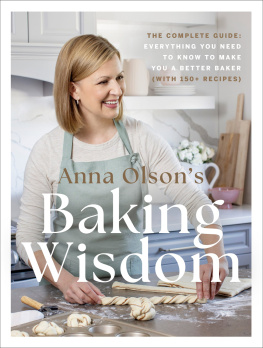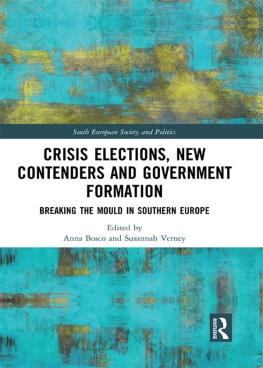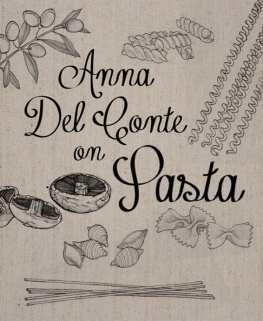What is Europe?
21st Century Europe Series
General Editor: Helen Wallace
Drawing upon the latest research, this major series of concise thematically-organized texts provides state-of-the-art overviews of the key aspects of contemporary Europe from the Atlantic to the Urals for a broad student and serious general readership. Written by leading authorities in a lively and accessible style without assuming prior knowledge, each title is designed to synthesize and contribute to current knowledge and debate in its respective field.
Published
Andrew Cottey: Security in 21st Century Europe (2nd Edn)
Colin Hay and Daniel Wincott: The Political Economy of European Welfare Capitalism
Christopher Lord and Erika Harris: Democracy in the New Europe
Anna Triandafyllidou and Ruby Gropas: What is Europe?
Forthcoming
Tom Casier and Sophie Vanhoonacker: Europe and the World
Klaus Goetz: Governing 21st Century Europe
Ben Rosamond: Globalization and the European Union
Dermot McCann: Political Economy of 21st Century Europe
In Preparation
Citizenship and Identity in 21st Century Europe
Society and Social Change in 21st Century Europe
21st Century Europe
Series Standing Order ISBN 9780333960424 hardback
Series Standing Order ISBN 9780333960431 paperback
(outside North America only)
You can receive future titles in this series as they are published. To place a standing order please contact your bookseller or, in the case of difficulty, write to us at the address below with your name and address, the title of the series and the ISBN quoted above.
Customer Services Department, Macmillan Distribution Ltd
Houndmills, Basingstoke, Hampshire RG21 6XS, UK
What is Europe?
Anna Triandafyllidou
and
Ruby Gropas
Anna Triandafyllidou and Ruby Gropas 2015
All rights reserved. No reproduction, copy or transmission of this publication may be made without written permission.
No portion of this publication may be reproduced, copied or transmitted save with written permission or in accordance with the provisions of the Copyright, Designs and Patents Act 1988, or under the terms of any licence permitting limited copying issued by the Copyright Licensing Agency, Saffron House, 610 Kirby Street, London EC1N 8TS.
Any person who does any unauthorized act in relation to this publication may be liable to criminal prosecution and civil claims for damages.
The authors have asserted their rights to be identified as the authors of this work in accordance with the Copyright, Designs and Patents Act 1988.
First published 2015 by
PALGRAVE
Palgrave in the UK is an imprint of Macmillan Publishers Limited, registered in England, company number 785998, of 4 Crinan Street, London, N1 9XW.
Palgrave Macmillan in the US is a division of St Martins Press LLC, 175 Fifth Avenue, New York, NY 10010.
Palgrave is a global imprint of the above companies and is represented throughout the world.
Palgrave and Macmillan are registered trademarks in the United States, the United Kingdom, Europe and other countries.
ISBN 9781403986795 hardback
ISBN 9781403986825 paperback
This book is printed on paper suitable for recycling and made from fully managed and sustained forest sources. Logging, pulping and manufacturing processes are expected to conform to the environmental regulations of the country of origin.
A catalogue record for this book is available from the British Library.
A catalog record for this book is available from the Library of Congress.
From Anna to Bo Strth, Stefano Bartolini and Tariq Modood,
From Ruby to Loukas Tsoukalis, Theodore Couloumbis,
Thanos Veremis and Geoffrey Edwards,
As friends, colleagues and mentors they have inspired us to hold
our professional and academic ethics high, speak our mind and
keep cool no matter what.
Preface
This book has a long story. It started in 2004 with an email from Steven Kennedy, who was Editor of the Palgrave Politics series. Together with Helen Wallace, they were launching a series on the New Europe. It started as an idea about a book critically discussing the question of what is Europe, and it also had a two-year delivery timeline.
We are now in February 2015. It obviously took longer than two years to complete this book that was for a long time a single-authored endeavour Anna and eventually became a joint project Anna and Ruby.
Over the past decade, the idea of writing this book has always been incredibly fascinating and challenging, and sometimes even daunting. With Europe incessantly changing, and with euphoria giving place to a series of crises, trying to tackle the question of what Europe is has been increasingly complex, but also so much more politically meaningful.
While we have been writing this book, Europe has changed in many different ways. No surprise there really, as Europe has always been characterized with constant change. But the magnitude and range of dimensions on which changes have occurred during this decade have made the question of what is Europe all the more intriguing. The idea for this book was framed at a time when we were still riding the Euro-euphoria of the early 2000s. Very quickly this gave way to deep political crisis as EU citizens rejected the European Constitution in 2005, leading thinkers and intellectuals to some further soul-searching on what is Europe, on what Europe and the EU meant for Europeans, and on what this all meant for democracy in Europe. The celebratory mood of the continents unification through EU enlargement to include Central and Eastern European countries, the island states of Cyprus and Malta as well as the formal start of accession negotiations with Turkey came to an abrupt end with the London and Madrid bombings of 2004 and 2005. The global financial crisis and the deep Eurozone crisis that followed severely impacted the lives of many EU citizens, challenging the very foundations of the EU edifice. As we are finishing this book, Europe is in a rather sombre state facing the aftermath of the Arab spring, a war in Ukraine and regular tragedies at its borders, as young men and women die or drown as they try to reach Europe. It is also facing a disconcerting rise again of many -isms: Euroscepticism, nationalism, populism and racism. Yet not all is bleak. We are also observing a rich democratic backlash from citizens and civil society against these divisive responses, calling for tolerance and respect for difference, for the need to respond to violent fundamentalism through inclusive policies, and for solidarity and social justice to continue to be values at the core of Europe.
Turning the idea into an actual manuscript has been fascinating as Europe kept being a moving object, but the task was not easy. There have been more requests to extend the submission deadline than any one of us can remember. There were always just too many other things going on. The joys and challenges of a mobile academic career do not leave much time for authored books. The book was always postponed as research project proposals, project deliverables, journal articles and job applications were each time taking precedence as more urgent and pressing deadlines. And, the joys and challenges of parenthood gave us even less time to dedicate to this book, as each one of us had two children during these years: Kimonas (2004), Alexandros (2010), Spiros Francis (2010) and Evangelia (2013).








